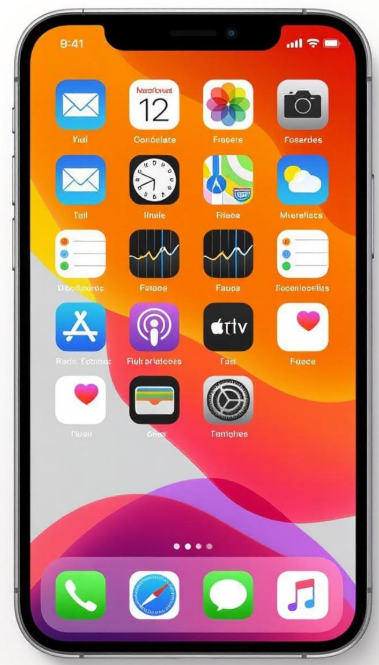When Microsoft dropped the news this week that Xbox Game Pass Ultimate would jump from $20 to $30 per month, the gaming community collectively lost its mind. A 50% price increase isn’t just a nudge—it’s a full-on shove that has players questioning whether the “Netflix of gaming” model is actually sustainable or if we’ve all been living in a too-good-to-be-true fantasy.
But here’s the kicker: according to recent reports from Bloomberg, there’s a very specific reason behind this dramatic price hike, and it has everything to do with Call of Duty. Specifically, Microsoft apparently gave up over $300 million in potential sales when they added Call of Duty: Black Ops 6 to Game Pass as a day-one release last year. And now? Well, someone’s got to pay for that decision.
The Game Pass Dream That Got Too Real
Let me take you back a bit. When Xbox Game Pass first launched, it seemed like gaming magic. Pay a monthly subscription, get access to hundreds of games, and even get Microsoft’s own blockbuster titles on day one. It was revolutionary. Gamers loved it. Industry analysts scratched their heads wondering how Microsoft could possibly make money with this model.
Turns out, those analysts might have been onto something.
The service has been incredible for players. Imagine getting to play massive AAA titles without dropping $70 on each one. For many gamers, especially those who play a lot of different games, the math made perfect sense. According to some data, the average Game Pass Ultimate subscriber plays around $550 worth of games per year. That’s a lot of value packed into those monthly payments.
But Microsoft isn’t running a charity here. They’re running a business. And when you start adding the biggest gaming franchise in history to your subscription service for “free,” the numbers start getting complicated really fast.
The Call of Duty Calculation
Call of Duty isn’t just another game. It’s THE game for millions of players worldwide. Every year, like clockwork, a new Call of Duty drops and millions of people shell out $70 (or more for the fancy editions) without a second thought. It’s a cash printing machine.
When Microsoft acquired Activision Blizzard for a whopping $69 billion, they got their hands on this golden goose. The big question everyone had was: would they put Call of Duty on Game Pass?
They did. And it was huge.
Call of Duty: Black Ops 6 launching on Game Pass day one was a massive deal. Subscribers were thrilled. Why spend $70 when you’re already paying for Game Pass anyway? But here’s where the math gets painful for Microsoft: every person who played Black Ops 6 through Game Pass instead of buying it was $70 that Microsoft didn’t make.
According to the Bloomberg report, this decision cost Microsoft more than $300 million in lost sales. That’s three hundred million dollars that would have gone straight into Microsoft’s pocket if all those Game Pass subscribers had bought the game instead.
Why This Actually Matters
You might be thinking, “Okay, but Microsoft is a trillion-dollar company. What’s $300 million to them?” Fair point. But here’s the thing—it’s not really about whether Microsoft can afford it. It’s about whether Game Pass can afford it.
Despite Microsoft’s claims that Game Pass is profitable (they reported nearly $5 billion in revenue for the fiscal year ending in June), the margins are clearly tight. Adding massive, guaranteed-hit games like Call of Duty eats into those margins significantly.
Think about it from Microsoft’s perspective. They paid billions to acquire Activision Blizzard. They’re paying developers to make these games. They’re maintaining servers for cloud gaming. They’re making deals with third-party publishers to add their games to the service. And now they’re essentially giving away $70 games to subscribers who are paying $20-30 per month for access to hundreds of titles.
The business model only works if enough people subscribe and if those subscribers stick around long enough. But here’s a problem: recent surveys show that cost is the number one reason Game Pass subscribers cancel. And now Microsoft just made their service 50% more expensive.
The Backlash Was Swift and Brutal
The internet did what the internet does best—it absolutely roasted Microsoft. Even GameStop, which you’d think would stay quiet, jumped into the conversation with a tweet comparing Game Pass’s “pay $30 a month, own nothing” model to their “buy once, own forever” approach.
Players started sharing screenshots of their cancelled subscriptions. The phrase “cancel now” started trending in gaming circles. People who had been loyal subscribers for years suddenly felt betrayed by the massive price jump.
Microsoft tried to soften the blow by introducing new features and restructuring their subscription tiers. They added Ubisoft+ Classics, expanded cloud gaming capabilities, and created new plans called Essential and Premium alongside Ultimate. But none of that really matters when people see a 50% price increase on their credit card statement.
The Bigger Picture: Is Game Subscription Sustainable?
This whole situation raises a question that goes way beyond just Xbox: can the subscription model actually work for big-budget games in the long term?
We’ve seen this movie before with other industries. Netflix changed how we watch TV, but now we’re dealing with subscription fatigue as every company launches their own streaming service. The “affordable alternative to cable” has become “subscribe to eight different services to watch all your shows.”
Gaming seems to be heading down a similar path. You’ve got Xbox Game Pass, PlayStation Plus, EA Play, Ubisoft+, and others all competing for your monthly subscription dollars. At some point, it stops being a value proposition and starts being a financial burden.
The math has to work for companies too. Making AAA games is incredibly expensive. Call of Duty games cost hundreds of millions to develop and market. If the primary way people play these games is through subscriptions instead of $70 purchases, either subscription prices have to go up or the quality/quantity of games has to go down. There’s no magic third option.
What This Means For Gamers
For players, this is a wake-up call. The golden era of Game Pass—where you could pay $10-15 a month and play absolutely everything—is over. Microsoft has shown they’re willing to significantly increase prices when their financial models demand it.
At $30 per month, Game Pass Ultimate is now $360 per year. That’s the cost of about five full-price games. So you need to ask yourself: am I playing more than five Game Pass games per year that I would have otherwise bought? If yes, it might still be worth it. If no, you might be better off just buying the games you actually want to play.
The harsh reality is that we, as gamers, got spoiled. Game Pass at its previous pricing was probably unsustainable from the start. Microsoft was essentially subsidizing our gaming habits while they built up the subscriber base. Now that they have millions of subscribers locked into the ecosystem, they’re adjusting prices to something that actually makes financial sense for them.
Gaming Strategy
So where does gaming go from here? Microsoft isn’t backing down from Game Pass if anything, they’re doubling down on it. But they’re also being more realistic about what it costs to run such a service.
We’ll probably see more price adjustments in the future as Microsoft figures out the sweet spot between keeping subscribers happy and actually making money. There might be more tiering, more restrictions on which games are available when, or longer waits before new releases hit the service.
The Call of Duty situation specifically will be interesting to watch. Will Microsoft keep putting new Call of Duty games on Game Pass day one, knowing it costs them hundreds of millions? Or will they shift strategy and make subscribers wait a few months, allowing initial sales to happen before the Game Pass release?
Insights
The $300 million that Microsoft gave up by putting Black Ops 6 on Game Pass isn’t just an interesting statistic it’s a sign of things to come. Game Pass has been an incredible deal for gamers, sometimes almost impossibly good. But business realities eventually catch up with everything.
The 50% price increase to $30 per month is Microsoft’s way of saying, “Hey, we need this to actually be profitable, not just popular.” Whether players stick around at that price point remains to be seen. But one thing is clear: the landscape of how we buy and play games is shifting, and we’re all watching it happen in real time.
For now, gamers have a decision to make. Is Game Pass Ultimate at $30 per month still worth it for your gaming habits? Or is it time to go back to buying games individually? There’s no wrong answer—it depends entirely on what you play and how much you play.
What is certain is that the “Netflix of gaming” is growing up, and growing up means higher prices. Whether it also means better value or just better profits for Microsoft is something we’ll only know as time goes on. But that $300 million Call of Duty price tag? That’s the cost of the future Microsoft is trying to build, and someone has to pay for it.
And that someone, as it turns out, is us.



